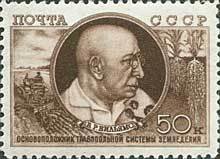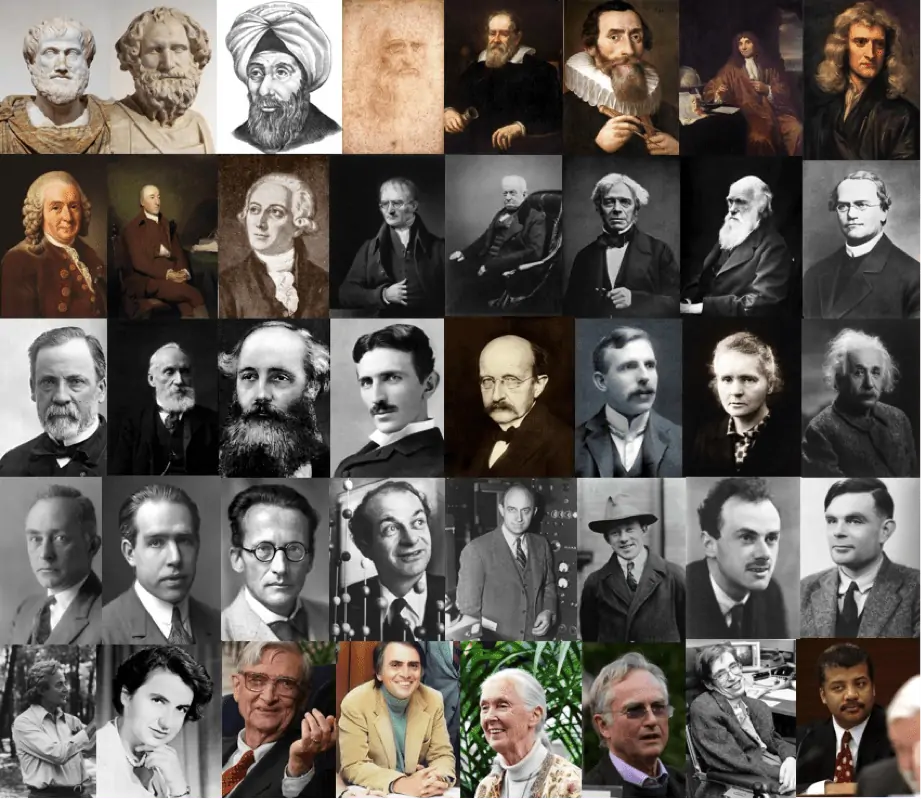Stamp: Vasily Williams (1863-1939), Russian and Soviet agronomist (Soviet Union, USSR 1949)
Vasily Williams (1863-1939), Russian and Soviet agronomist (Soviet Union, USSR 1949)
18 April (Soviet Union, USSR ) within release In commemoration of Vasily Williams goes into circulation Stamp Vasily Williams (1863-1939), Russian and Soviet agronomist face value 50 Russian kopek
| Stamp Vasily Williams (1863-1939), Russian and Soviet agronomist in catalogues | |
|---|---|
| Michel: | Mi:SU 1340 |
Stamp is horizontal format.
Stamp Vasily Williams (1863-1939), Russian and Soviet agronomist it reflects the thematic directions:
Famous People refers to the fame and public attention accorded by the mass media to individuals or groups or, occasionally, animals, but is usually applied to the persons or groups of people (celebrity couples, families, etc.) themselves who receive such a status of fame and attention. Celebrity status is often associated with wealth (commonly referred to as fame and fortune), while fame often provides opportunities to make money.
Commemorations are a type of religious observance in the many Churches of the Anglican Communion, including the Church of England. They are the least significant type of observance, the others being Principal Feasts, Principal Holy Days, Festivals, and Lesser Festivals. Whereas Principal Feasts must be celebrated, it is not obligatory to observe Commemorations. They are always attached to a calendar date, and are not observed if they fall on a Sunday, in Holy Week, or in Easter Week. In Common Worship Commemorations are not provided with collects or indications of liturgical colour. However, they may be celebrated as Lesser Festivals if local pastoral conditions suggest it.
Agriculture is the cultivation and breeding of animals, plants and fungi for food, fiber, biofuel, medicinal plants and other products used to sustain and enhance human life.[1] Agriculture was the key development in the rise of sedentary human civilization, whereby farming of domesticated species created food surpluses that nurtured the development of civilization. The study of agriculture is known as agricultural science. The history of agriculture dates back thousands of years, and its development has been driven and defined by greatly different climates, cultures, and technologies. Industrial agriculture based on large-scale monoculture farming has become the dominant agricultural methodology.
A scientist is a person who researches to advance knowledge in an area of the natural sciences
Flora is the plant life occurring in a particular region or time, generally the naturally occurring or indigenous—native plant life. The corresponding term for animal life is fauna. Flora, fauna and other forms of life such as fungi are collectively referred to as biota. Sometimes bacteria and fungi are also referred to as flora, as in the terms gut flora or skin flora.





